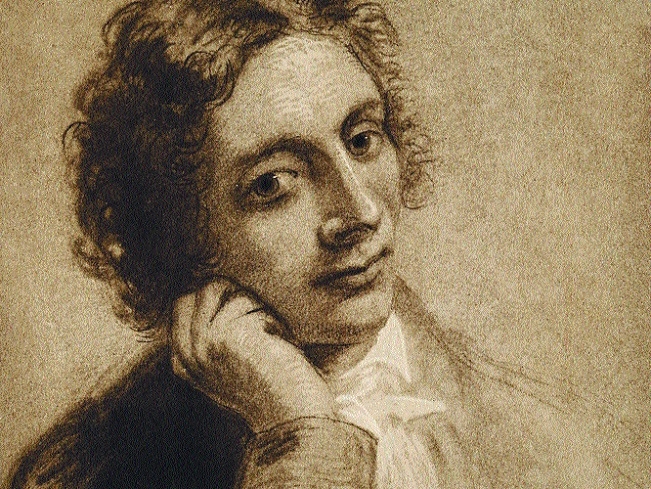Of poetic experience
| Date :16-Nov-2021 |

By Vijay Phanshikar :
“Poetry should ... should strike the reader as a wording of his own highest thoughts, and appear almost a remembrance.” - John Keats
ONE more wonderful definition of poetry! -- by someone whose poetic life was of just four years, cut short of an untimely death at 25. But even though his life-span was so short, John Keats created poetry that immortalised him in the annals of literature. How can we forget his immortal poem “Ode To A Nightingale”! As he struggled to have a proper life of good means and good health, Keats kept emoting time and again on life and literature and creative mind. That effort of his looked like an exploration of some source of connecting with self -- in a fond faith that that would bring not just solace but also bliss. Resort to poetry, thus, became Keats’ most endearing pursuit. Books was another. Very famously, he wrote once: “Give me books, French wine, fine weather, and a little music played out of doors played by somebody I do not know”.
His search, thus, appeared in the direction of a music -- possibly-- sourced from the Divine, the inner music! At another place, Keats said, “Heard melodies are sweet, but those unheard are sweeter.” That means, he was trying to hear the music in the air, in the environment. Indian context in this regard talks of a state of hearing the anahad naad (sound without a source). Despite Keats’ romanticism, thus, one does realise his metaphysical explorations. Poetry, too, was one such source of inner connect, he felt. So he said, poetry should strike the reader as a wording of his own highest thoughts, and appear almost a remembrance. This definition recognises that there is poetry within every person -- represented by the tumult, the triumph, tragedy, the tribulation of life. As he or she reads poetry, he -- or she -- should feel that the poet has captured in words his or her own thoughts.
That experience should come as a recall of the stirring within, as if the memory is coming up from a deep well of the mind, as if the poet has known what the reader feels. This connect, this communion -- so to say, is the quintessence of the poetic experience in the reader’s head and heart. It has a meditative quality. Anybody pursuing reading of poetry not just as an escape but also as an engagement often gets into that mode and mood. In that sense, the poet and the reader become one -- metaphysically. That experience transcends all barriers of time and geography and culture. True, John Keats is known as a romantic poet -- in line with masters such as Lord Byron, P. B. Shelly. Even in this verbalisation of the poetic experience, there is certain romanticism whose finesse cannot be missed. Obviously, John Keats was blessed with a subtle and sublime mental conditioning that enabled him to see the unseeable, hear the unheard, sense the unsensable.